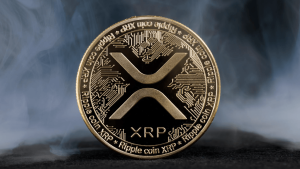Finder’s Specialists Predict Ethereum Will Slip to $963 This Year, but End 2022 at $1,377 per Unit – Markets and Prices Bitcoin News

46% of around 55 fintech and cryptocurrency specialists believe ethereum is undervalued following The Merge, according to a recent survey published by the comparison website Finder.com. With less than three months left in 2022, Finder’s panelists predict that ethereum will drop as low as $963 per unit this year, and they also expect ethereum to end the year at $1,377 per unit.
46% of Finder’s Experts Think Ethereum Is Undervalued, While 31% Think the Price Is Fair
On October 11, 2022, Finder.com, the product and price comparison web portal, published a new prediction survey that discusses the second-leading crypto asset ethereum (ETH). Bitcoin.com News reported on Finder’s last ether prediction poll which said ether’s value could bottom out at $675 per coin by the year’s end. The latest ethereum Finder’s survey leverages 55 fintech and crypto experts who predict a different outcome regarding ether’s future value.
For instance, 46% of the latest survey’s panelists believe ETH is undervalued but will drop as low as $963 per unit this year. The panelists also believe that after the $963 bottom is in, ether will end 2022 at $1,377 per unit. 31% of the surveyed experts think ethereum is currently fairly priced and 23% of Finder’s panelists think ETH is overpriced. By 2025, the panelists expect ETH to reach $5,154 per ether and by 2030, the experts think ETH will tap $11,727 per unit.
Thomson Reuters technologist and futurist, Joseph Raczynski, predicts ETH will reach $1,700 by the end of 2022.
“[Ethereum] has fallen in value, though one could argue, Ethereum is actually more valuable and secure now. The narrative is also way better on the environmental impact, reducing electricity consumption by over 99%,” Raczynski remarked in Finder’s latest ether prediction study.
SEBA Bank head of research Yves Longchamp is one of the 31% of panelists that believe ether is fairly priced at the moment. “The Ethereum ecosystem is undergoing a series of upgrades,” Longchamp wrote. “All are intended to lead the Ethereum network to greater scalability, transaction speed, and cost efficiency. Once complete, The Merge will set up Ethereum to be a global settlement layer, fit for building powerful decentralized applications.”
Panelists Say While Ethereum Won Points From Bureaucrats and Environmentalists, the Points Were a Trade-off for Less Decentralization
Boston Trading Co. CFO Jeremy Britton detailed during the survey that even though Ethereum has won points with governments and environmentalists, the protocol “lacks the decentralization for which crypto was intended.” Tommy Honan, the head of strategic partnerships at Swyftx has a similar opinion. Honan says the validator concentration within the ETH network is concerning, and it can give bitcoin (BTC) an advantage.
“Early statistics on concentration of staking validators is quite concerning, given 5 or so based in the U.S. account for around 64% of staked ETH globally,” Honan explained. “Although I believe this will level out over time, it means The Merge event has further contributed to the centralisation of Ethereum, another card for the Bitcoin maximalists to hold over its closest rival.”
56% of Finder’s panelists, however, do not think the blockchain will ever be “monopolized by a single player,” and 22% think that it’s likely a single player could monopolize the ETH network. 22% responded that they are “unsure” about whether or not ETH will be ruled by centralized entities in the future.
What do you think about the recent Finder’s prediction study concerning the second leading crypto asset ethereum? Let us know what you think about this subject in the comments section below.
Image Credits: Shutterstock, Pixabay, Wiki Commons
Disclaimer: This article is for informational purposes only. It is not a direct offer or solicitation of an offer to buy or sell, or a recommendation or endorsement of any products, services, or companies. Bitcoin.com does not provide investment, tax, legal, or accounting advice. Neither the company nor the author is responsible, directly or indirectly, for any damage or loss caused or alleged to be caused by or in connection with the use of or reliance on any content, goods or services mentioned in this article.















